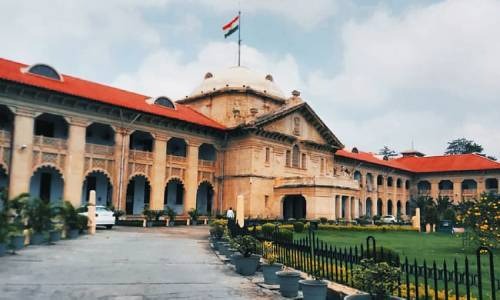
Case Title: Ram Pravesh And 3 Other v. the State of U.P. and Another
The Allahabad High Court in the present case observed that matrimonial dispute between the husband and wife should be quashed when the parties have resolved their entire dispute between themselves through a compromise deed duly filed and verified by the Court.
Summing up the legal principle, The Court also referred to the case of Gian Singh v. State of Punjab and another, wherein Hon'ble Supreme Court has held as follows-
The position that emerges from the above discussion can be summarised thus:
"the power of the High Court in quashing a criminal proceeding or FIR or complaint in exercise of its inherent jurisdiction is distinct and different from the power given to a criminal court for compounding the offences under section 320 of the code. Inherent power is of wide plenitude with no statutory limitation but it has to be exercised in accord with the guideline engrafted in such power viz.: (i) to secure the ends of justice, or (ii) to prevent abuse of the process of any court. In what cases power to quash the criminal proceeding or complaint or FIR may be exercised where the offender and the victim have settled their dispute would depend on the facts and circumstances of each case and no category can be prescribed. However, before exercise of such power, the High Court must have due regard to the nature and gravity of the crime. Heinous and serious offences of mental depravity or offences like murder, rape, dacoity, etc. cannot be fittingly quashed even though the victim or victim's family and the offender have settled the dispute. Such offences are not private in nature and have a serious impact on society. Similarly, any compromise between the victim and the offender in relation to the offences under special statutes like the Prevention of Corruption Act or the offences committed by public servants while working in that capacity, etc.; cannot provide for any basis for quashing criminal proceedings involving such offences. But the criminal cases having overwhelmingly and predominatingly civil flavour stand on a different footing for the purposes of quashing, particularly the offences arising from commercial, financial, mercantile, civil, partnership or such like transactions or the offences arising out of matrimony relating to dowry, etc. or the family disputes where the wrong is basically private or personal in nature and the parties have resolved their entire dispute. In this category of cases, the High Court may quash the criminal proceedings if in its view, because of the compromise between the offender and the victim, the possibility of conviction is remote and bleak and continuation of the criminal case would put the accused to great oppression and prejudice and extreme injustice would be caused to him by not quashing the criminal case despite full and complete settlement and compromise with the victim. In other words, the High Court must consider whether it would be unfair or contrary to the interest of justice to continue with the criminal proceeding or continuation of the criminal proceeding would tantamount to abuse of process of law despite settlement and compromise between the victim and the wrongdoer and whether to secure the ends of justice, it is appropriate that the criminal case is put to an end and if the answer to the above question(s) is in the affirmative, the High Court shall be well within its jurisdiction to quash the criminal proceeding.”

